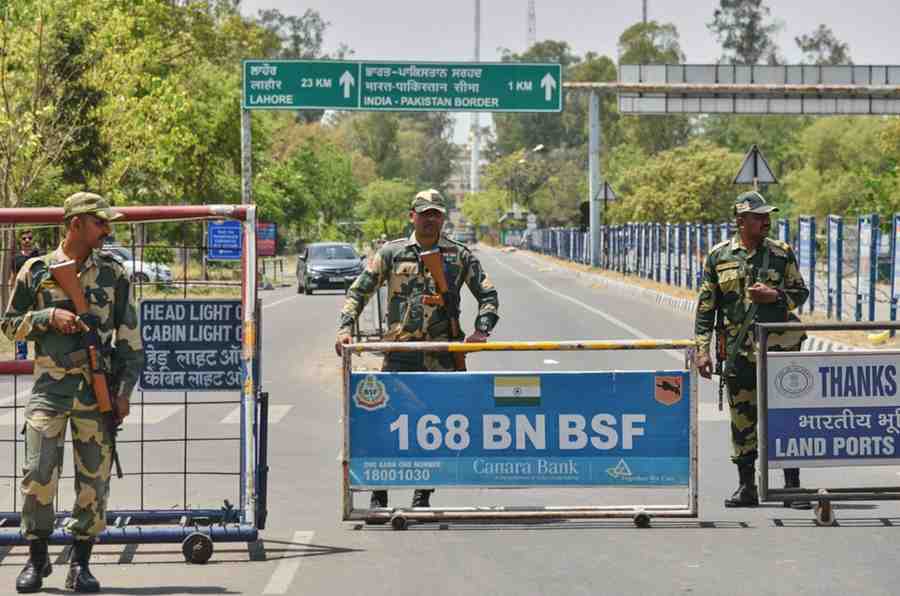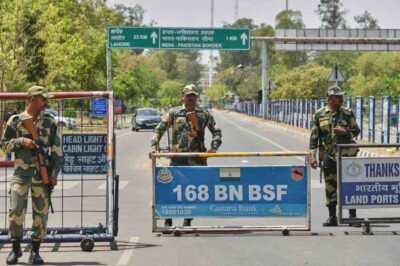
A New Crisis Ignited by the Pahalgam Attack
Tensions between India and Pakistan have reached a boiling point following a deadly terrorist attack in Pahalgam, a popular tourist destination in Jammu and Kashmir. The attack, which killed 26 Indian civilians, mostly tourists, has been described as one of the deadliest in recent memory. India has directly blamed Pakistan-based militant groups for orchestrating the massacre. While Islamabad has vehemently denied any involvement, the gravity of the incident has sent diplomatic relations into a downward spiral, raising fears of a renewed military confrontation between the two nuclear-armed neighbours.
U.S. Issues Level 4 Travel Advisory
In response to the deteriorating security situation, the United States swiftly issued a Level 4 “Do Not Travel” advisory for the region of Jammu and Kashmir, with the exception of eastern Ladakh and its capital, Leh. Citing terrorism and civil unrest, the U.S. Department of State advised American citizens to avoid all travel near the India-Pakistan border. The move signals heightened global concern and reflects fears that the situation could spiral into a larger conflict. Other nations, including the UK and Canada, are reportedly reviewing their travel advisories in light of the attack.
UN Appeals for Restraint and Dialogue
As the two nations exchange sharp rhetoric and military posturing, the United Nations has called for calm. Secretary-General António Guterres urged both India and Pakistan to exercise “maximum restraint” and to engage in meaningful dialogue to resolve the crisis. The UN offered its assistance in mediation, should both parties request it, emphasizing that peaceful negotiations are the only viable path forward. Despite these calls, the mood in both New Delhi and Islamabad remains defiant, with each government facing pressure from domestic political audiences to respond firmly.
Exchange of Fire and Diplomatic Fallout
Reports have emerged of increased cross-border shelling between Indian and Pakistani forces along the Line of Control (LoC), although no casualties have been confirmed so far. In an assertive diplomatic manoeuvre, India suspended parts of the Indus Waters Treaty, a historic agreement brokered in 1960 that governs water sharing between the two countries. This move has alarmed Islamabad, which termed the suspension an “act of war” and warned of “serious consequences.” Both countries have also ordered diplomatic staff reductions and issued advisories for their nationals to leave the neighbouring country, further souring relations.
Domestic Repercussions and Public Anger in India
The aftermath of the Pahalgam attack has ignited intense public outcry in India. Protests have been staged in major cities demanding justice and a strong government response. In Jammu and Kashmir, local authorities have launched wide-scale operations to detain suspects allegedly linked to the attack. Security forces have demolished the homes of some suspects, an approach that has become increasingly controversial and been dubbed “bulldozer justice” by critics and civil rights groups. Meanwhile, Indian Prime Minister Narendra Modi has vowed that those responsible will “pay a heavy price,” reinforcing a firm national stance that has struck a chord with much of the public.
Wider Regional and Global Implications
What makes this crisis particularly dangerous is its broader geopolitical context. India and Pakistan are both nuclear powers with long-standing animosity and a history of armed conflict, most recently in 2019 during the Balakot airstrikes. The region of Kashmir remains a flashpoint, complicated by China’s growing presence and strategic interests in Pakistan-occupied Kashmir through its Belt and Road Initiative. China, an ally of Pakistan, has issued a cautious statement urging “regional stability,” but observers fear that any military engagement between India and Pakistan could draw in larger powers like the United States and China, risking a multi-nation standoff.
Environmental and Humanitarian Concerns
India’s suspension of water flow provisions under the Indus Waters Treaty could have serious environmental and humanitarian consequences. Pakistan, already facing a water crisis, relies heavily on these rivers for agriculture and drinking supply. Environmentalists and international development agencies have warned that turning water into a geopolitical weapon could destabilize not only the region’s ecology but also food security and public health. Additionally, human rights groups have called attention to the civilian toll in Kashmir, where frequent lockdowns, military operations, and curfews continue to disrupt daily life.
Conclusion: A Tense and Uncertain Path Forward
The Pahalgam attack has acted as a catalyst for rapidly escalating tensions between India and Pakistan. While international bodies like the UN and major powers such as the U.S. have appealed for restraint, both New Delhi and Islamabad remain entrenched in their positions. The global community watches with bated breath, aware that even a small misstep could push the subcontinent toward another violent confrontation. With diplomatic channels strained and emotions running high, the immediate future remains fraught with uncertainty. Whether this latest crisis becomes a turning point for renewed dialogue or a trigger for deeper conflict will depend on how the coming days unfold.








































Leave a Reply